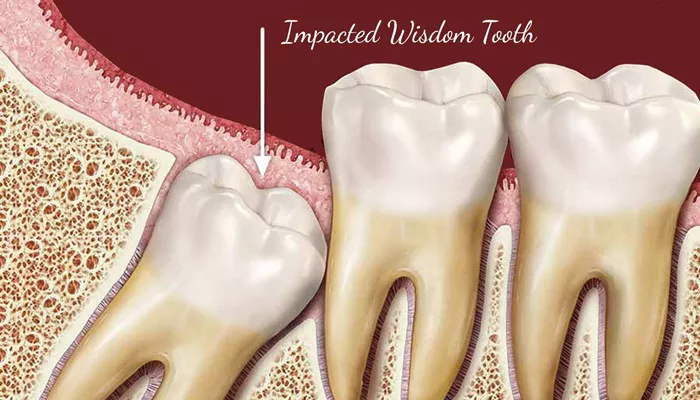Wisdom teeth extraction is a common dental procedure that often requires anesthesia to ensure patient comfort and pain management. General anesthesia is one of the options available, and understanding how long it lasts and its effects is crucial for patients undergoing this procedure. In this article, we will explore the duration of general anesthesia after wisdom tooth extraction, the factors that influence its effects, and what patients can expect during recovery.
Overview of General Anesthesia
General anesthesia is a medically induced state of unconsciousness that allows patients to undergo surgical procedures without experiencing pain or discomfort. During wisdom tooth extraction, general anesthesia can be administered through intravenous (IV) medications or inhaled gases. This method is particularly useful for patients who may be anxious about the procedure or for those undergoing more complex extractions.
Duration of General Anesthesia
The duration of general anesthesia can vary significantly depending on several factors, including:
Type of Anesthesia Used: General anesthesia can be delivered via different methods, such as IV sedation or inhalation. IV sedation tends to wear off more quickly than inhaled anesthetics, which may linger in the body longer.
Individual Patient Factors: Each patient’s metabolism, age, weight, and overall health can influence how quickly they recover from anesthesia. Younger, healthier individuals may metabolize anesthesia faster than older adults or those with underlying health conditions.
Complexity of the Procedure: The length of the surgery itself also plays a role. More complex extractions may require a longer duration of anesthesia, leading to a longer recovery time.
Typically, patients can expect to be in a recovery area for about 1.5 to 2 hours after surgery. During this time, medical staff will monitor their vital signs and ensure they are safely regaining consciousness.
SEE ALSO: What Does Healthy Wisdom Teeth Healing Look Like
Recovery Timeline After General Anesthesia
After wisdom tooth extraction under general anesthesia, the recovery process can be broken down into several phases:
Immediate Recovery (0-2 Hours Post-Procedure)
Waking Up: Patients usually begin to regain consciousness within minutes after the anesthesia is stopped. However, it may take some time for them to fully wake up and become alert.
Monitoring: Medical staff will monitor patients for any adverse reactions to the anesthesia, such as nausea, vomiting, or respiratory issues.
Discharge Preparation: Once patients are alert and stable, they will be given instructions for post-operative care. It is essential to have a responsible adult available to drive them home, as they will not be able to operate a vehicle safely.
Short-Term Recovery (2-24 Hours Post-Procedure)
Feeling Groggy: Patients may feel groggy or disoriented for several hours after the procedure. This is a common effect of general anesthesia and typically resolves within a few hours.
Nausea and Vomiting: Some patients may experience nausea or vomiting as a side effect of the anesthesia, especially if they have not eaten beforehand. Staying hydrated and consuming bland foods can help alleviate these symptoms.
Pain Management: Pain medication may be prescribed to manage discomfort from the extraction. It is important to follow the dentist’s instructions regarding medication usage.
Long-Term Recovery (24 Hours and Beyond)
Return to Normal Activities: Most patients can resume normal activities within a few days, but it is advisable to avoid strenuous exercise and heavy lifting for at least a week.
Follow-Up Care: Patients should attend any scheduled follow-up appointments to ensure proper healing and address any concerns.
Factors Influencing Recovery From General Anesthesia
Several factors can affect how long general anesthesia lasts and how quickly a patient recovers:
Age: Older adults may experience prolonged effects from anesthesia due to slower metabolism and potential underlying health issues.
Health Conditions: Patients with pre-existing health conditions, particularly those affecting the liver or kidneys, may metabolize anesthesia more slowly.
Medications: Certain medications can interact with anesthesia, affecting its duration and the recovery process. Patients should inform their dentist of all medications they are taking.
Anxiety Levels: Patients who are particularly anxious about dental procedures may require higher doses of anesthesia, which can lead to longer recovery times.
Signs of Complications After Anesthesia
While general anesthesia is generally safe, it is essential to be aware of potential complications. Patients should contact their dentist or oral surgeon if they experience any of the following symptoms:
Severe Nausea or Vomiting: Persistent nausea that does not improve with medication may require medical attention.
Difficulty Breathing: Any trouble breathing or feeling lightheaded should be addressed immediately.
Excessive Bleeding: If bleeding from the extraction site does not stop after applying pressure, patients should seek help.
Severe Pain: While some discomfort is expected, severe pain that is not relieved by prescribed medications may indicate a complication, such as dry socket or infection.
Conclusion
Understanding how long general anesthesia lasts after wisdom tooth extraction is essential for patients to prepare adequately for the procedure and recovery. While the immediate effects of anesthesia typically wear off within a few hours, individual factors can influence recovery time. By following pre-operative and post-operative instructions, patients can ensure a smoother recovery process.’

